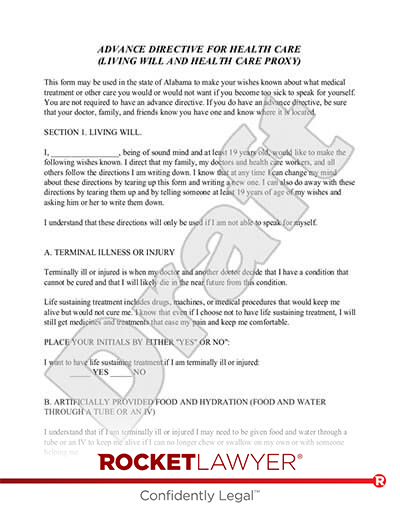The statutes of most states require that your agent be an adult. In addition, under most circumstances, your agent cannot be your health care provider (for example, a physician, nurse, employee, officer, director, or operator of a home health agency, hospital, nursing home, or residential care facility) unless that person is related to you. In selecting an agent for your Living Will, you should not designate a person who is, or may become, directly involved in providing health care to you unless that person is your spouse or a family member.
Make sure your agent is willing to assume responsibility for your medical decision making. If she agrees to be your proxy, talk with her about your values, beliefs and desires. Good health care agents are able to separate their own feelings from yours and your wishes, but may feel guilt and anguish at having to make such difficult end-of-life decisions. Communicating early and often with your agent can help ensure that both you and your agent are comfortable and at peace with your life-support wishes.
Choose just one person to serve as your agent at a given time to avoid conflicts. But choose an alternate agent in case the primary agent is not available. Once you have selected an agent, make sure they get a copy of your Living Will, and tell your family and physician whom you've selected.
Many individuals give their health care agents broad authority to override their written Living Will. Other individuals give the written Living Will priority. Make sure to articulate which instruction to follow when there is a conflict between your agent and your Living Will.
Create your Living Will with Rocket Lawyer. If you have questions about choosing an agent, Consult a Legal Pro.
This article contains general legal information and does not contain legal advice. Rocket Lawyer is not a law firm or a substitute for an attorney or law firm. The law is complex and changes often. For legal advice, please ask a lawyer.
